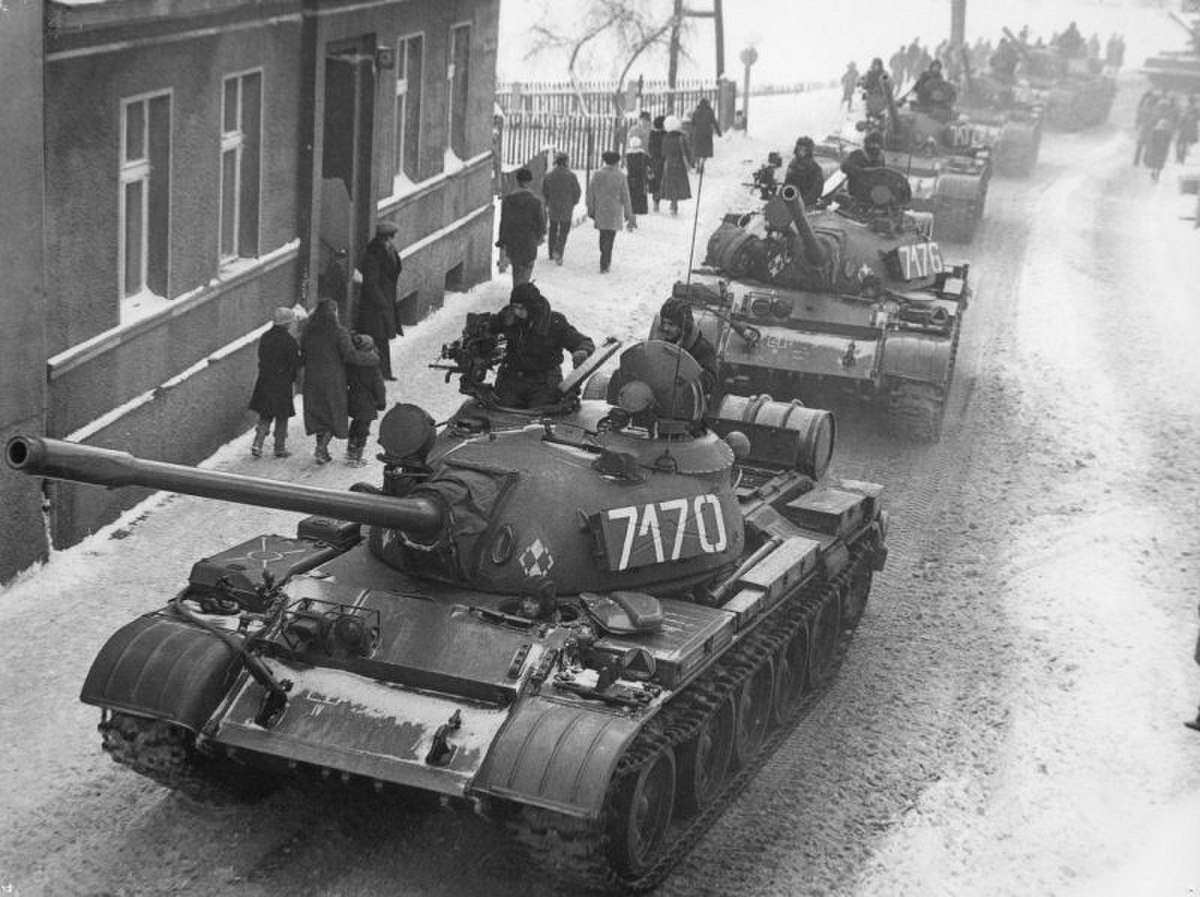
Martial Law and End of Communism
PolandOn 12–13 December 1981, the regime declared martial law in Poland, under which the army and the ZOMO special police forces were used to crush Solidarity. The Soviet leaders insisted that Jaruzelski pacifies the opposition with the forces at his disposal, without Soviet involvement. Almost all Solidarity leaders and many affiliated intellectuals were arrested or detained. Nine workers were killed in the Pacification of Wujek. The United States and other Western countries responded by imposing economic sanctions against Poland and the Soviet Union. Unrest in the country was subdued, but continued.
Having achieved some semblance of stability, the Polish regime relaxed and then rescinded martial law over several stages. By December 1982 martial law was suspended and a small number of political prisoners, including Wałęsa, were released. Although martial law formally ended in July 1983 and a partial amnesty was enacted, several hundred political prisoners remained in jail. Jerzy Popiełuszko, a popular pro-Solidarity priest, was abducted and murdered by security functionaries in October 1984.
Further developments in Poland occurred concurrently with and were influenced by the reformist leadership of Mikhail Gorbachev in the Soviet Union (processes known as Glasnost and Perestroika). In September 1986, a general amnesty was declared and the government released nearly all political prisoners. However, the country lacked basic stability, as the regime's efforts to organize society from the top down had failed, while the opposition's attempts at creating an "alternate society" were also unsuccessful. With the economic crisis unresolved and societal institutions dysfunctional, both the ruling establishment and the opposition began looking for ways out of the stalemate. Facilitated by the indispensable mediation of the Catholic Church, exploratory contacts were established.
Student protests resumed in February 1988. Continuing economic decline led to strikes across the country in April, May and August. The Soviet Union, increasingly destabilized, was unwilling to apply military or other pressure to prop up allied regimes in trouble. The Polish government felt compelled to negotiate with the opposition and in September 1988 preliminary talks with Solidarity leaders ensued in Magdalenka. Numerous meetings that took place involved Wałęsa and General Kiszczak, among others. The fitful bargaining and intra-party squabbling led to the official Round Table Negotiations in 1989, followed by the Polish legislative election in June of that year, a watershed event marking the fall of communism in Poland.
